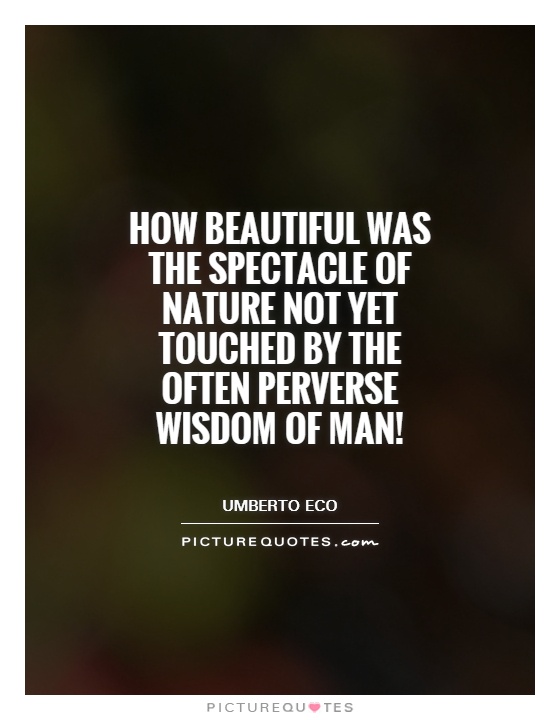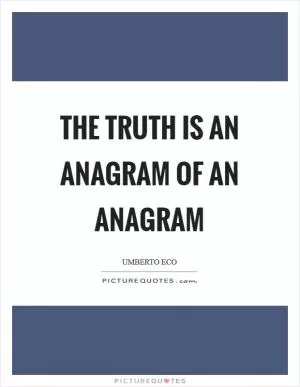How beautiful was the spectacle of nature not yet touched by the often perverse wisdom of man!

How beautiful was the spectacle of nature not yet touched by the often perverse wisdom of man!
Umberto Eco, the renowned Italian novelist and philosopher, often explored the complex relationship between nature and humanity in his works. In his writings, Eco frequently reflected on the beauty and purity of nature, untouched by the often destructive influence of human intervention. One of his most famous quotes, "How beautiful was the spectacle of nature not yet touched by the often perverse wisdom of man!" encapsulates this sentiment perfectly.Eco's words evoke a sense of awe and wonder at the natural world, highlighting the inherent beauty and harmony that exists in untouched landscapes. He suggests that nature, in its purest form, is a source of inspiration and solace, offering a respite from the chaos and destruction wrought by human hands. In a world increasingly dominated by technology and industrialization, Eco's words serve as a poignant reminder of the importance of preserving and protecting the natural world.
The phrase "perverse wisdom of man" speaks to the idea that human intervention in nature is often misguided and harmful. Eco believed that our attempts to control and manipulate the natural world often lead to unintended consequences, disrupting the delicate balance of ecosystems and causing irreparable damage. He saw nature as a source of wisdom and guidance, untouched by the flawed reasoning of humanity.
Eco's reverence for nature is evident in his writing, where he often portrayed the natural world as a place of beauty and wonder. In his novel "The Name of the Rose," Eco describes the lush landscapes of medieval Italy with vivid detail, capturing the essence of a world untouched by modernity. Through his words, Eco invites readers to appreciate the splendor of nature and to reflect on the impact of human actions on the environment.












 Friendship Quotes
Friendship Quotes Love Quotes
Love Quotes Life Quotes
Life Quotes Funny Quotes
Funny Quotes Motivational Quotes
Motivational Quotes Inspirational Quotes
Inspirational Quotes